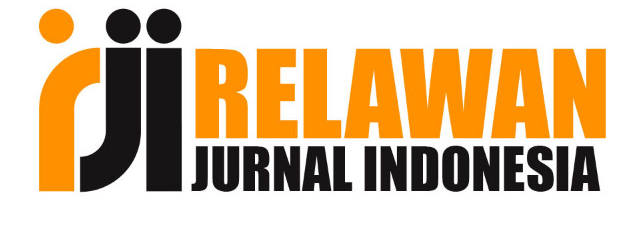ANALISIS FAKTOR INTERNAL DAN EKSTERNAL :PENGHAMBAT DAN SOLUSI PERKEMBANGAN KOPERASI(STUDI PADA KOPERASI UNIT DESA DI KABUPATEN MUBA)
DOI:
https://doi.org/10.36982/jiegmk.v6i1.54Abstract
The location of this study in Musi Banyuasin, while the object of research is the Village Unit Cooperatives in six Districts, Cooperative Village Unit investigated the KUD Sinar Desa, KUD Pembela, KUD Sejahtera, KUD Sandes, KUD Embun Pagi, KUD Pelita, KUD Panca Kerja, KUD Tri Jaya, KUD Sumber Jaya Makmur Lestari and KUD Karya Makmur.
Use research methods and research approaches diskriftif fenomenalogi approach. While the research instrument used questionnaires, interviews and surveys. This research activity has resulted in findings that the average KUD studied in healthy condition either simultaneously or partially. The results of the simultaneous study of cooperatives in the top ten there are two healthy KUD the KUD Tri Jaya and KUD Karya Makmur Jaya and cooperatives to obtain scores respectively 81.6 and 80.6. While eight other KUD in reasonably healthy condition with acquisition scores above 65 While the partial results of the calculation of the average rate earned on internal factors and external factors on each of the Cooperative are very varied. Through the above data if each of these cooperative complies with the Cooperative management, both from the internal and external side. If seen from the average achieved in the calculation of the internal factors there are four cooperatives that have Quality of human resources, as well Implement Cooperative Principle, system administration and good business. The cooperatives are cooperatives Prosperous scores 81, KUD Pelita scores 81, KUD Tri Jaya scores 81.67 and 81 scores Karya Makmur that KUD While having a score of 58.33 which is KUD Sinar Desa , the low value of the score obtained in the cooperative course is determined by the specified indicators.
Based on the results of research studies and results indicators SWOT analysis can be seen that the main problem lies in the KUD only: Low Capital, Low Quality Board, Lack of Information on cooperative management, lack of capacity and skills in the field of administration and management of financial To overcome these problems takes the following steps: Capital Increase and to the board of Cooperative Management Training, Recruitment and Appointment of administrators are more selective in who has the education and work experience, improving employee training, facility improvement, especially supporters of the technology, cooperative empowerment Acceleration directionally and integrated, Synergize regional development programs with cooperative work program
References
_______ , 2000. â€Undang-Undang Perkoperasian No. 25/1992 Tentang Perkoperasianâ€. Jakarta : Penerbit Sinar Grafika.
Bisnis Indonesia, 2013, †Tiga Penyebab Koperasi di Indonesia sulit berkembang, tersedia di http://www.depkop.go.id/index/php? (15 Desember 2013)
Ervina, 2011. â€Mengapa Koperasi di Indonesia sulit berkembang†tersedia di http://ervinana.blogspot.com di akses pada 13 Desember 2013
Firdaus, Muhammad, 2002. Perkoperasian Jakarta Ghalia Indonesia
Hendar dan Kusnadi, 1999. “Ekonomi Koperasi untuk Perguruan Tinggiâ€, Jakarta. Lembaga Penerbit Fakultas Ekonomi Universitas Indonesia.
Hutasuhut, 2001., “Manajemen Koperasi Menuju Kewirausahaan Koperasi†Jurnal Ilmiah Manajemen & Bisnis, Vol.1 No. 1. h. 2-5.
Lia Ameliawati, 2013. “Koperasi Mati Segan Hidup Tak Mau†http://liaameliawati0817.blogspot.comdiakses pada 10 Mei 2014
Mulawarman, Aji Dedi., 2007, “Mengembangkan Kompetensi Inti Dan Konsep Bisnis Koperasi: Digali Dari Realitas Masyarakat Indonesia†Tersedia di : http:// Ajidedim.wordpress.com (15 Juni 2009)
Muba Dalam Angka, 2012. Pemerintah Kabupaten Musi Banyuasin
Nugroho, Adi. 2000. â€Sukses Berkoperasi†Solo CV Anika
Rangkuti, Freddy, 2002. â€Analisis Swot Teknik Membedah Kasus Bisnis†Jakarta. PT. Gramedia Pustaka Utama
Roswita Maryam, 2007 †Strategi Pengembangan Usaha Agrobisnis KUD Barokah†Vol 3 Edisi 2
Sumarni, Murti dan Salamah Wahyuni., 2005, “Metodologi Penelitian Bisnisâ€, Yogyakarta: CV. Andi Offset.
Saptana, dkk., 2005, “Transformasi Kelembagaan Guna Memperkuat Ekonomi Rakyat Di Pedesaan:Suatu Kajian Atas Kasus Di Kabupaten Tabanan, Baliâ€.Tersedia di : http://ejournal.unud.ac.id/ (14 Juni 2012)
Soetrisno, Noer. 2002. “Koperasi Indonesia: Potret dan Tantanganâ€. Jurnal Ekonomi Rakyat. Th II No. 5 Agustus, h. 35-40
Sukmadinata, N.S, 2011. “Metode Penelitian Pendidikanâ€. Cetakan ke 7. Bandung : Remaja Rosdakarya.
Peraturan Menteri Negara Koperasi dan Usaha Kecil dan Menengah Republik Indonesia Nomor 14/Per/M.KUKM/XII/2009 tentang Perubahan atas Peraturan Menteri Negara Koperasi dan Usaha Kecil dan Menengah Nomor 20/Per/M.KUKM/XI/2008 tentang Pedoman Penilaian Kesehatan Koperasi Simpan Pinjam dan Unit Simpan Pinjam.
Widodo, dkk., 2002, “Aspek Pengurusan dalam Pengembangan Koperasi Desa yang Lebih Maju (Kajian KUD di Propinsi Bengkulu Indonesia). Jurnal Penelitian UNIB, Vol. III No.1. h. 1-11
Zefri, 2004. “Perspektif Usaha Kecil dan Menengah Sebagai Pilihan Dalam Pembangunan Wilayahâ€. Makalah. Tersedia di : http://rudyct.com/
Downloads
Published
How to Cite
Issue
Section
License
Authors retain copyright and grant the journal right of first publication with the work simultaneously licensed under a Creative Commons Attribution License that allows others to share the work with an acknowledgement of the work's authorship and initial publication in this journal.
Â
Authors are permitted and encouraged to post their work online (e.g., in institutional repositories or on their website) prior to and during the submission process, as it can lead to productive exchanges, as well as earlier and greater citation of published work.
Â
LP2M Indo Global Mandiri University has the right to multiply and distribute the article and every author is not allowed to publish the same article that has been published in this journal.









